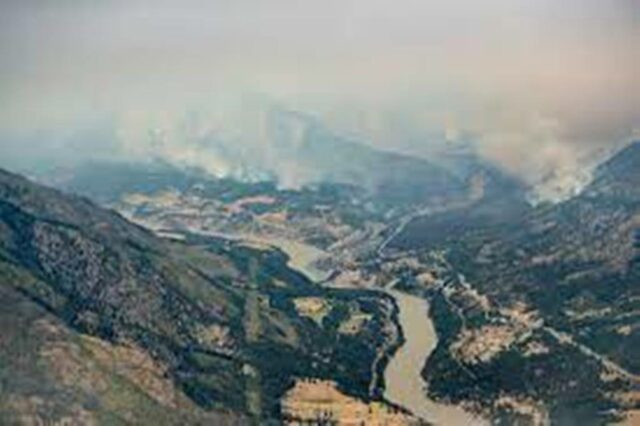The unusual heat wave that hit southwestern Canada and the northwestern United States with record temperatures last week would have been “almost impossible” if the planet was not immersed in a process of climate change fueled by the greenhouse gases that the human beings have induced.
This is concluded by an express analysis prepared by scientists from the World Weather Attribution (WWA), an international group dedicated to analyzing the influence of global warming on extreme weather events. The researchers warn that as climate change accelerates, events as strange as this wave will be “much less rare”.
Heatwave scorches climate skepticism in Canada’s oil capital
The heat wave off the Pacific coast of North America, which has claimed the lives of hundreds of people and has been accompanied by severe wildfires, has dropped off all historical temperature charts. Because of this, as the authors of this report point out, it is not normal for it to exceed 45 degrees in the latitudes where the heat wave occurred.
In the small Canadian town of Lytton (of around 250 inhabitants and at a similar latitude to Berlin), the temperature reached 49.6 °C, according to local press —in Spain, the temperature record was registered in 2017 in Montoro (Córdoba) and was 47.3 °C. “The observed temperatures were so extreme that they are very far from the historically observed temperature range”, explain the authors of this express analysis.
Reports attributing extreme events to climate change often analyze data to find out how likely it is that they would have occurred in the absence of global warming. In the case of the heat wave off the Pacific coast of the US and Canada, it has been 150 times more likely due to climate change.
“Climate change is making extremely rare events like this one more frequent. We are entering uncharted territory. The temperatures experienced in Canada last week would have broken records in Las Vegas or Spain”, explained Sonia Seneviratne, from the Institute of Atmospheric Sciences and Climate Sciences, in Zurich, and one of the authors of the analysis.

Human activity responsible for greenhouse gas emissions
The researchers also conclude that this heat wave was about two degrees warmer than it would have been if it had occurred at the beginning of the Industrial Revolution, that is, before humans began to use fossil fuels on a large scale, which are the main responsible for greenhouse gas emissions.
When the heat wave was still active, the World Meteorological Organization (WMO) already warned that it was an “exceptional and dangerous” phenomenon. The WMO did not establish a direct relationship of this phenomenon to climate change, but it did remember that scientific studies point to an increase in waves due to global warming.
WWA researchers insist on the same idea when they point out that as warming progresses, waves like last week’s will be much less rare. These scientists argue that the climate crisis is leading humanity to a new scenario; “that has significant consequences for health, well-being, and way of life”. That is why they are calling for measures to cut greenhouse gas emissions and to adapt to the impacts of a warming that is currently irreversible so that society is prepared “for a very different future”.

